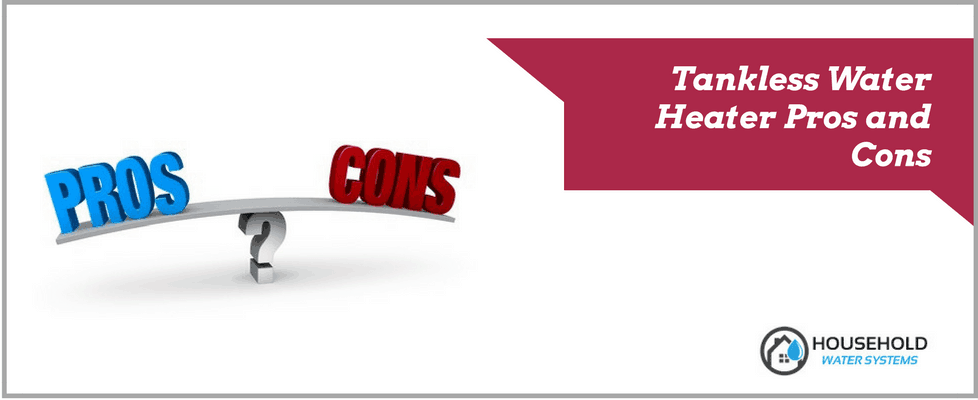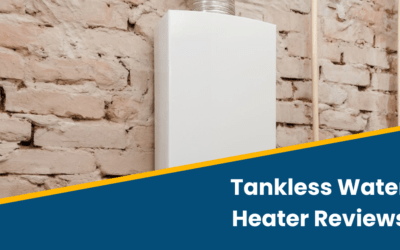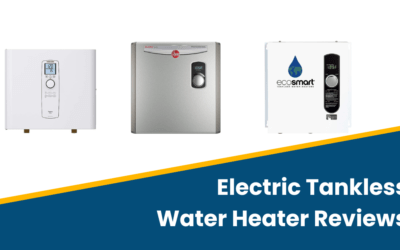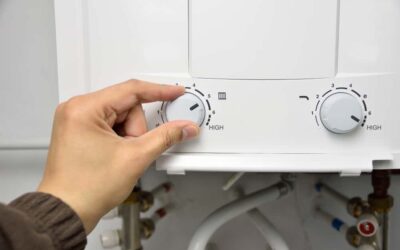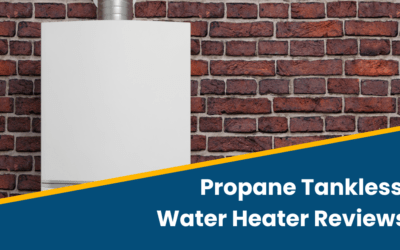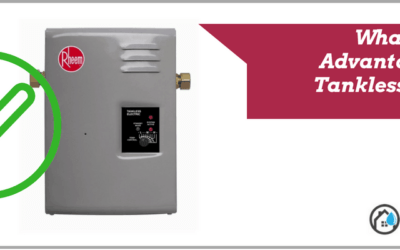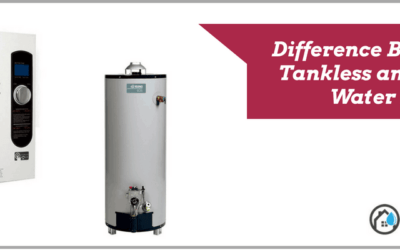If you need a new water heater, your first step will be to decide if you want a traditional water heater or a tankless one. There are tradeoffs with each option. Although an increasing number of homeowners are opting to go with a tankless water heater, many people are not familiar with what this type of water heater has to offer.
To help you make an educated buying decision, here is a guide to the pros and cons of tankless water heaters:
So…what is a tankless water heater?
A tankless water heater (sometimes called an on-demand water heater) utilizes a heat source, generally gas or electric, to heat up cold water on demand whenever it is needed, as opposed to storing preheated hot water in a tank.
Lower energy bills, an endless supply of hot water, and additional storage space are three of the most commonly touted benefits that tankless water heaters have to offer. According to the U.S. Department of Energy, an electric tankless heater will save a homeowner approximately $44.00 per year in energy costs, while its gas powered cousin will save an average of $109.00 each year in energy costs.
Sound enticing?
Don’t rush out and buy one just yet.
The Good…
The benefits of an on-demand water heater extend beyond energy savings. For example, the highest rated tankless water heaters feature compact designs, which minimize the amount of space they consume. The upside to this design is that they can often be installed in non-traditional locations, like an attic or a crawl space.
When compared to traditional water heaters, a tankless model has a longer lifespan, and manufacturers tend to offer better warranties. The average industry warranty for a traditional water heater is 10 years. By comparison, the average manufacturer’s warranty for a tankless water heater is 15 years. That is a significant difference. On demand water heaters are better for the environment in that, once the unit does reach the end of its lifespan, a tank won’t wind up in a landfill – rusting and leaking noxious compounds into the air.
Many homeowners enjoy peace of mind from knowing that, should their home’s tankless heater break down, they don’t have to worry about leaking water or having standing water ruining their walls and flooring.
The Bad…
The primary downside to purchasing a tankless water heater is its purchase price and installation costs. Be prepared for a tankless water heater to cost you more than three times what a traditional water heater would. Prices for this type of water heater can range from $500.00 for an electric, point of use model to well over $3,000.00 for a gas powered, whole home model. There is also the cost of hiring a professional hot water heater installer to do the job.
Although some homeowners have had success with installing a tankless water heater themselves, it’s important to note that most manufacturers will not honor their warranties on a model unless it is installed by a licensed professional.
One must also consider that not every home will be equipped to support a tankless water heater. For example, if your home has electric only utilities, then there is a good chance that your electrical system will require upgrading. This means that you are going to need to hire an electrician. Depending on the size of your home and the complexity of the job, this can add as much as $5,000.00 to the overall cost of installing a tankless water heater.
On a positive note, many states, as well as the federal government, offer tax credits to homeowners who go tankless to help offset the total cost of purchase and installation.
…And the Practical
Before deciding to convert to tankless, here are a few practical considerations you’ll need to bear in mind:
- Your Home’s Hot Water Requirements: Do you need your water heater to heat a single bathroom or a whole home (e.g. multiple bathrooms, a dishwasher, washing machine, etc.)?
- Life Expectancy: On average, a tankless water heater will provide 20 years of service, which is twice the average lifespan of a traditional water heater.
- Location: Tankless water heaters must be installed within 50 feet of a dedicated power source, which can restrict where they can be installed in your home. Most manufacturers recommend installing your unit indoors, as most models are not built to withstand exposure to inclement weather.
- Electric or Gas: Electric tankless water heaters are 93% to 99% efficient than traditional water heaters; however, they do not qualify for Energy Star ratings or tax rebates because each requires a product to improve its overall energy output by 14% over prior models. Gas powered tankless heaters can be up to 60% more efficient storage water heaters, which qualifies them for rebates and tax incentives; however, they are more expensive to operate than electric models.
Should I Go Tankless or Not?
Tankless water heaters are better for the environment, but for many homeowners, the sheer cost of purchasing and installing one does not offset the benefits it offers. Take the time to do your homework and analyze what your household’s needs are. Ultimately, the decision is yours. There is no right or wrong answer.

